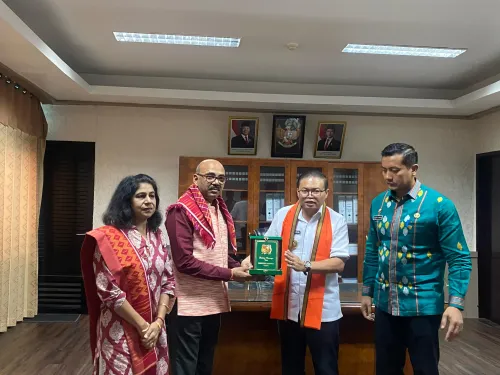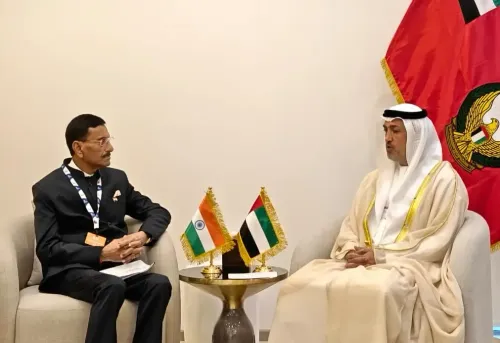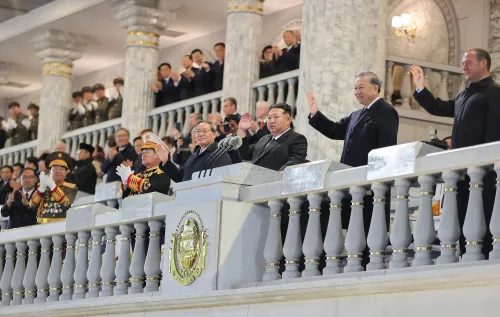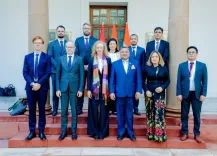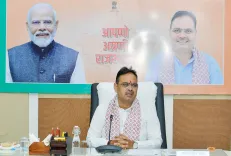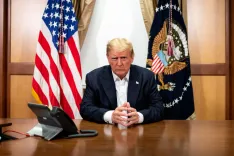What Does Ex-US Official Think About Rahul Gandhi's Comments?
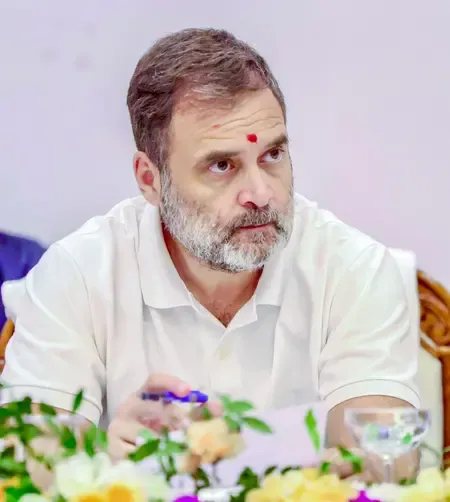
Synopsis
Key Takeaways
- Raymond Vickery stresses the importance of unity among Indian leaders.
- Democracy in India is being perceived as endangered.
- Political discourse needs to focus on Indian values.
- India's diverse structure is a strength against authoritarianism.
- Future political dialogue should prioritize national interests.
Washington, Oct 3 (NationPress) Raymond Vickery, a former senior official of the US government, has responded to Rahul Gandhi's comments in Colombia regarding the threats to democracy in India. He emphasized that political leaders, regardless of their party backgrounds, need to advocate for Indian values and national interests.
In an interview with IANS, Vickery noted that the bipartisan dialogue around shared values has deteriorated in both the United States and India.
“I would prefer to see Indian leaders from all political factions advocate for Indian values, including those aligned with the interests of the nation. We previously showcased the values of the United States globally as leaders of the free world, a united front from both Republicans and Democrats. Unfortunately, this unity has fractured in the US, and I fear it is happening in India too,” he remarked.
He encouraged political leaders to adopt a broader perspective regarding national priorities.
“It would be beneficial for all parties to promote a wider outlook, and I hope India can embrace this—regardless of whether one is in opposition or in government,” he stated.
On Wednesday, Rahul Gandhi sharply criticized the Modi government, asserting that the most significant threat to India today is a systematic assault on its democratic foundations.
During a packed event with students at EIA University in Envigado, Colombia, the Leader of the Opposition in Lok Sabha expressed that India’s strength is rooted in its diversity—spanning multiple religions, languages, and traditions—and that democracy is the sole system capable of accommodating all these voices.
However, he claimed that this very system is under threat.
Gandhi characterized India as a complex and decentralized nation, markedly different from the centralized and uniform structure of China. He argued that India's framework cannot support authoritarianism, suggesting that efforts to suppress its people would ultimately be unsuccessful.
“India is a dialogue among its people,” he asserted, noting that a democratic framework is essential for allowing various traditions and ideas to thrive.

